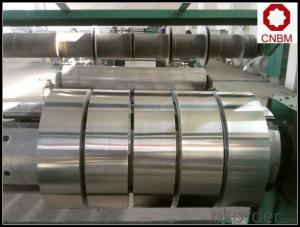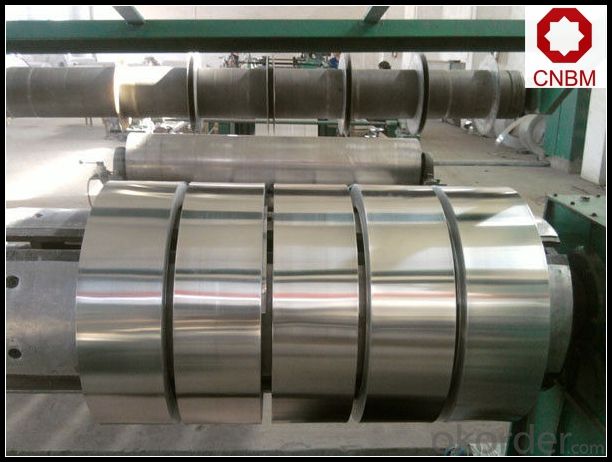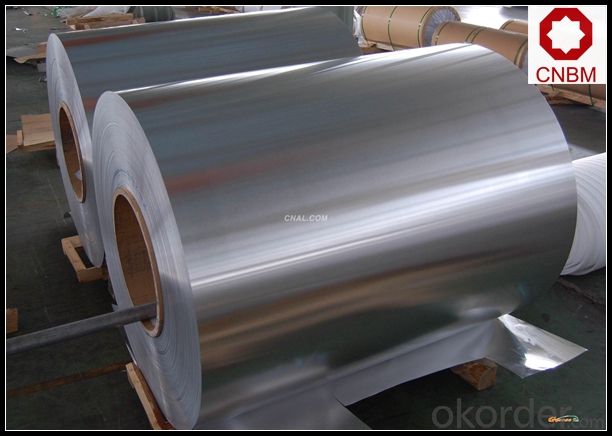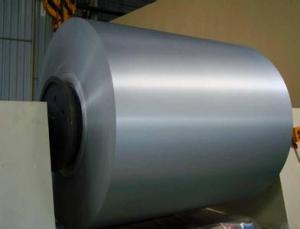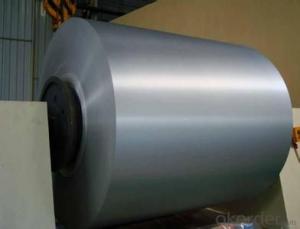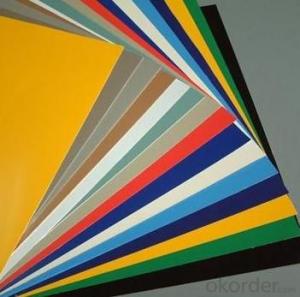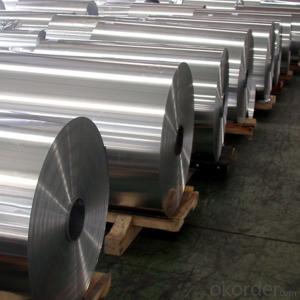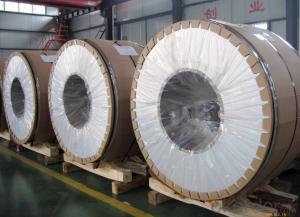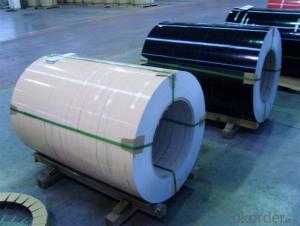Hot Rolled 5083 Mill Finished Coated Aluminum Coil
- Loading Port:
- Shanghai
- Payment Terms:
- TT OR LC
- Min Order Qty:
- 5 m.t.
- Supply Capability:
- 10000 m.t./month
OKorder Service Pledge
OKorder Financial Service
You Might Also Like
Specification
1. Specification of 5083 Mill Finished Coated Aluminum Coil
1) Alloy | 1050, 1060,1100, 3003 3004 3105 3A21 5005 5052 etc |
2) Temper | O/H12/H14/H1/H18/H32/H34/H36/H38//H111/H112/H116/H321/T6/T651/T3/T351 etc |
3) Thickness | 0.1mm to 6mm |
4) Width | 20mm to 3300mm |
5) Coil weight | 100kgs to 6 tons depends on actual requirement |
6) Core material | Aluminum or paper |
7) Coil Inner diameter | 75mm, 150mm, 200mm, 300mm, 405mm, 505mm or as required |
8) Protective film can be added
2. Application of 5083 Mill Finished Coated Aluminum Coil
(1).Interior: wall cladding, ceilings, bathrooms, kitchens and balconies, shutters, doors...
(2).Exterior: wall cladding, facades, roofing, canopies, tunnels,column covers , renovations...
(3).Advertisement: display platforms, signboards, fascia, shop fronts...
3. Feature of 5083 Mill Finished Coated Aluminum Coil
*Such coil is specially designed to replace aluminum ingot, due to the high export tax of aluminum ingot, the coil has better price than ingot.
*This type of coil can fit customer's remelting furnace just like ingot, no need to make any change to the production line that was previously used for ingot. The standard coil size and weight is very suitable for the feed gate of furnace.
*This type of coil causes less material wastage than ingot when remelted.
*Our coil is made directly from ore, no need to go though the ingot making process, quality is much better than other suppliers who use ingot scrap to make coil.
Be free from Oil Stain, Dent, Inclusion, Scratches, Stain, Oxide Dicoloration, Breaks, Corrosion, Roll Marks, Dirt Streaks and other defect which will interfere with use
4. Certificate:
SGS and ROHS(if client request, paid by client), MTC(plant provided), Certificate of Origin(FORM A, FORM E, CO), Bureau Veritas and SGS (if client request, paid by client), CIQS certificate
5. Image of 5083 Mill Finished Coated Aluminum Coil
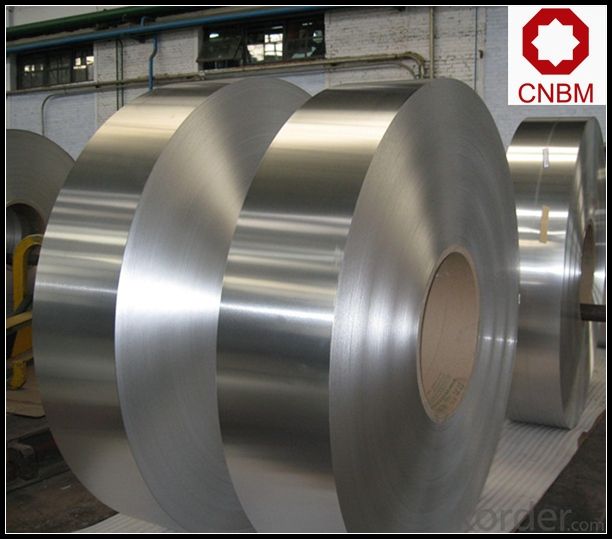
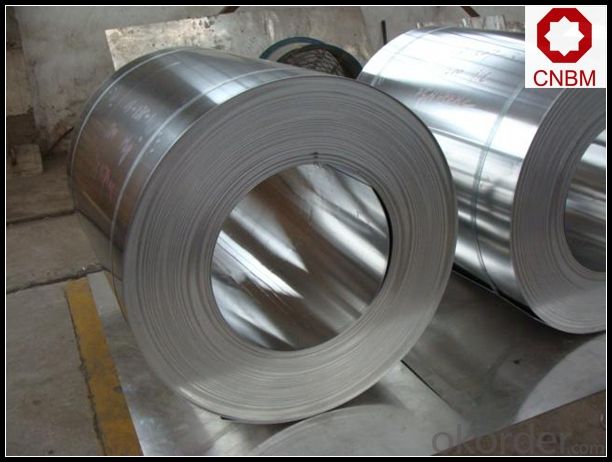
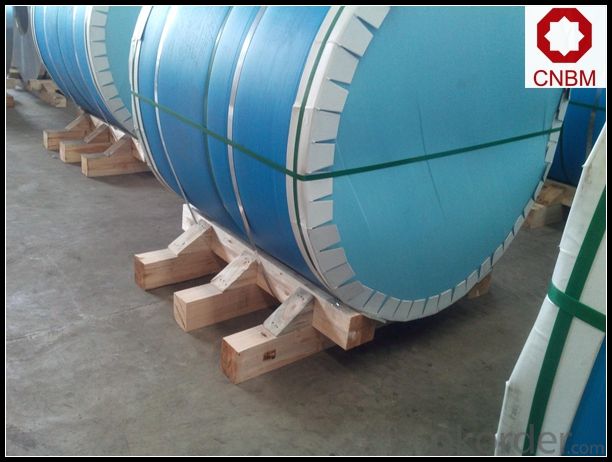
6. Package and shipping of 5083 Mill Finished Coated Aluminum Coil
eye to wall
eye to the wall
with wood pallet (wooded case also available)
7. FAQ
1) What is the delivery time?
Dpends on actual order, around 20 to 35 days
2)What is the QC system:
We have QC staff of 20 persons and advanced equipment, each production is with MTC traced from Aluminum ingot lot.
3) What market do you mainly sell to?
Australia, America, Asia, Middle East, Western Europe, Africa etc
- Q: Can aluminum coils be used in solar panel manufacturing?
- Solar panel manufacturing can incorporate aluminum coils as they are lightweight and durable. This material is widely utilized across industries, including the solar panel manufacturing sector, due to its exceptional thermal conductivity, resistance to corrosion, and cost-effectiveness. In the production of solar panels, aluminum coils are commonly employed to construct the frame or support structure for the photovoltaic cells. By fabricating and shaping the coils to the desired configuration, a robust and steady structure is achieved for the solar panel. Furthermore, aluminum is recyclable, making it an environmentally conscious option for the production of solar panels.
- Q: Is it safe and effective to use aluminum coil for baking purposes?
- <p>Yes, aluminum coil can be used for baking. It is a common material in baking due to its excellent heat conductivity, which allows for even heating and browning of baked goods. However, it's important to ensure that the aluminum coil is food-grade and clean to avoid any contamination. Additionally, some people may be concerned about potential health risks associated with aluminum, although these concerns are generally considered minimal when using aluminum cookware for baking.</p>
- Q: Are aluminum coils suitable for roofing applications?
- Indeed, roofing applications can indeed make use of aluminum coils. Aluminum, as a material, possesses the qualities of being lightweight and durable, thus making it advantageous for roofing projects. In terms of corrosion resistance, aluminum excels, which is crucial in safeguarding roofs from weather elements like rain, snow, and UV radiation. Furthermore, aluminum is fire-resistant, ensuring safety in roofing applications. Moreover, aluminum coils possess high malleability, allowing for effortless shaping and installation on various roof designs. They are also obtainable in an extensive array of colors and finishes, providing aesthetic choices for different architectural styles. All in all, the durability, versatility, and aesthetic appeal of aluminum coils contribute to their popularity in roofing applications.
- Q: Can aluminum coils be used in solar panel applications?
- Yes, aluminum coils can be used in solar panel applications. Aluminum is a lightweight, durable, and corrosion-resistant material that is commonly used in the construction of solar panels. It is often used as a component in the frame or as a backsheet material, providing structural support and protection to the solar cells.
- Q: Can aluminum coils be used in the production of aluminum honeycomb panels?
- Yes, aluminum coils can be used in the production of aluminum honeycomb panels. Aluminum coils are commonly used as the primary material for making aluminum honeycomb panels. The coils are typically processed and shaped into thin sheets or layers, which are then bonded together with an adhesive to form the honeycomb structure. This lightweight and durable structure makes it ideal for various applications, such as aerospace, construction, and transportation industries.
- Q: How do aluminum coils compare to other materials in terms of strength?
- Aluminum coils are known for their excellent strength-to-weight ratio, making them highly competitive compared to other materials. While materials like steel or copper may have higher absolute strength, aluminum coils offer comparable strength with significantly lighter weight, making them ideal for various applications where weight reduction is crucial.
- Q: How are aluminum coils coated for corrosion resistance?
- Aluminum coils are coated for corrosion resistance through a process called coil coating. Coil coating involves the application of a protective coating onto the aluminum surface to prevent it from corrosion caused by exposure to the environment. The first step in the process is the cleaning and pre-treatment of the aluminum coil. This is done to ensure that the surface is free from any contaminants, such as grease, dirt, or oxidation. The coil is typically cleaned using chemical cleaning agents and then rinsed to remove any residue. After cleaning, the coil is coated with a primer. The primer acts as a bonding agent between the aluminum surface and the subsequent coating layers. It enhances the adhesion of the topcoat and provides an additional layer of protection against corrosion. Once the primer is applied, the coil is then coated with a topcoat. The topcoat is usually a polymer-based paint that provides the desired color and appearance to the aluminum surface. It also acts as a barrier against moisture, UV radiation, and other environmental factors that can cause corrosion. The coating process can be done using various techniques, such as roll coating, spray coating, or coil painting. Each technique has its advantages and is chosen based on factors like cost, production speed, and the desired coating properties. In addition to the primer and topcoat, some aluminum coils may also receive a clear protective coating. This additional layer enhances the durability and longevity of the coated surface, providing an extra level of protection against corrosion. Overall, the coating of aluminum coils for corrosion resistance is a crucial step in ensuring the longevity and performance of the products made from these coils. The specific coating process and materials used may vary depending on the application and desired performance requirements.
- Q: Can aluminum coils be used in the production of railway tracks?
- No, aluminum coils cannot be used in the production of railway tracks. Railway tracks are typically made of steel for several reasons. Steel is a strong and durable material that can withstand the heavy loads and constant wear and tear of train traffic. It also has good heat resistance and can maintain its structural integrity under high temperatures, which is important for tracks that are exposed to friction and heat generated by moving trains. Aluminum, on the other hand, is a lighter metal with lower strength and poorer heat resistance compared to steel. While aluminum may be used in other components of railway infrastructure, such as electrical wires or certain parts of trains, it is not suitable for the production of railway tracks themselves.
- Q: Can aluminum coils be used for HVAC ducting?
- Indeed, HVAC ducting can utilize aluminum coils. Aluminum, known for its strength, lightweight properties, and resistance to corrosion, is frequently employed in HVAC systems. For the production of HVAC ductwork, aluminum coils are frequently employed as they effectively disperse air throughout the system while preserving its structural stability. Furthermore, aluminum coils exhibit remarkable heat transfer capabilities, enhancing the efficiency of cooling and heating procedures within the HVAC system. All in all, aluminum coils are an appropriate option for HVAC ducting as they offer numerous advantages and fulfill the prerequisites of a properly functioning HVAC system.
- Q: How are aluminum coils stored and transported?
- Aluminum coils are typically stored and transported in various ways depending on their size and weight. They are commonly stored in warehouses or outdoor storage facilities, where they are organized and stacked horizontally on pallets or racks. To ensure their protection, coils are often covered with a protective material such as plastic or shrink wrap. When it comes to transportation, aluminum coils are usually loaded onto trucks, containers, or flatbed trailers for long-distance journeys. To prevent damage during transit, the coils are secured using straps, chains, or other fastening methods. Additionally, specialized equipment like coil racks or cradles can be used to provide extra support and stability. Overall, proper storage and transportation practices are crucial to maintain the integrity of aluminum coils and prevent any potential harm.
Send your message to us
Hot Rolled 5083 Mill Finished Coated Aluminum Coil
- Loading Port:
- Shanghai
- Payment Terms:
- TT OR LC
- Min Order Qty:
- 5 m.t.
- Supply Capability:
- 10000 m.t./month
OKorder Service Pledge
OKorder Financial Service
Similar products
Hot products
Hot Searches
Related keywords
